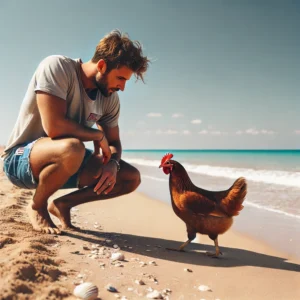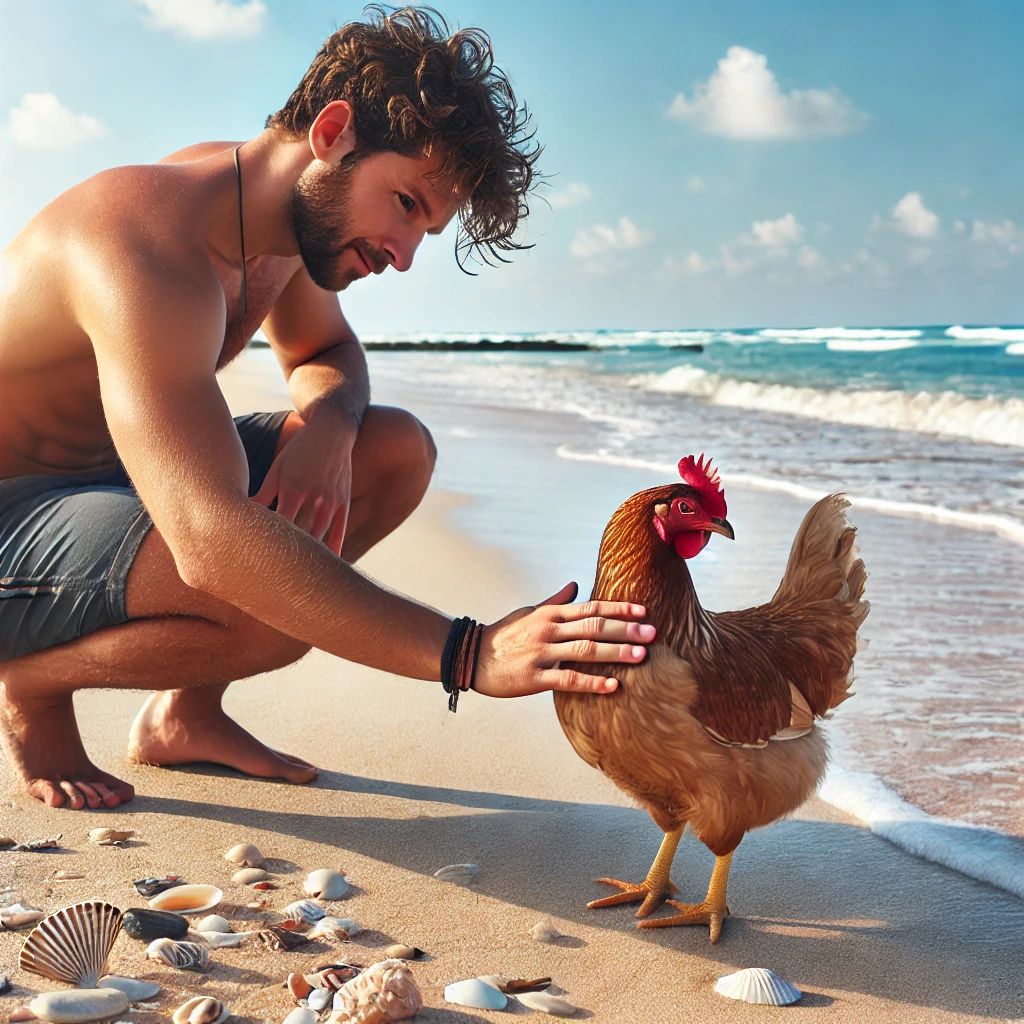Share this post
Dr. Jason Pirozzolo on Health Risks: Wild Chickens in Key West
Key West is an island known for its eclectic charm, vibrant culture, and unique attractions, but perhaps one of its quirkiest features is the wild chickens that roam freely across the streets. These colorful birds, once domestic fowl brought to the island by early settlers, have become a signature sight in Key West. For some, they add a delightful character to the town. For others, however, they raise concerns about public health. As a physician who cares deeply about community well-being, Dr. Jason Pirozzolo sheds light on the potential health risks associated with these wild birds and offers practical advice on how to stay safe.
“Wild chickens are more than just a charming nuisance,” says Dr. Pirozzolo. “While they may appear harmless, they can carry a range of bacteria, viruses, and parasites that can pose health risks to both residents and visitors.” The issue isn’t unique to Key West, but with such a large population of free-roaming chickens in close proximity to humans, the risk is worth discussing.
Health Concerns
One of the primary concerns when it comes to wild chickens is salmonella infection, a bacterial illness that can lead to gastrointestinal symptoms such as diarrhea, abdominal cramps, and fever. Salmonella is commonly found in the droppings of birds, including chickens, and can spread through contamination of food or water sources. Handling wild chickens or coming into contact with surfaces contaminated by their droppings without proper hand hygiene can increase the risk of infection.
“Salmonella infections can range from mild to severe,” Dr. Jason Pirozzolo explains. “For most healthy individuals, it may cause discomfort and self-limited symptoms, but for young children, the elderly, and those with weakened immune systems, it can become a serious health issue. Good hand hygiene is critical in preventing transmission.”
can range from mild to severe,” Dr. Jason Pirozzolo explains. “For most healthy individuals, it may cause discomfort and self-limited symptoms, but for young children, the elderly, and those with weakened immune systems, it can become a serious health issue. Good hand hygiene is critical in preventing transmission.”
Avian Influenza
Another significant, though less common, concern is avian influenza, or bird flu. This viral disease primarily affects birds but has the potential to infect humans, especially those who are in close contact with infected birds or their droppings. Although no major outbreaks of avian influenza have been linked to Key West’s wild chickens, it remains a theoretical risk.
“Avian influenza is something we always monitor in public health,” says Dr. Pirozzolo. “While the current risk of transmission from wild chickens in Key West is very low, vigilance is important. If you see sick or dead birds, it’s best to report them to local health authorities.” Symptoms of avian influenza in humans can include high fever, cough, and difficulty breathing, and severe cases may lead to complications like pneumonia.
Aside from bacterial and viral infections, wild chickens can also harbor Campylobacter, another type of bacteria that causes gastrointestinal illness. Known as campylobacteriosis, the infection presents with symptoms similar to those of salmonella, including diarrhea, fever, and abdominal pain. Like salmonella, Campylobacter can be transmitted through contact with contaminated food, water, or surfaces.
“Campylobacter infections are often underreported, but they can cause significant discomfort,” notes Dr. Pirozzolo. “The key to prevention is maintaining good hygiene practices, especially when dealing with areas frequented by wild chickens.”
Parasites, Lice and Mites
In addition to these bacterial risks, wild chickens may carry external parasites such as lice and mites. These tiny pests primarily affect birds but can occasionally transfer to humans, causing itching and irritation. Although they are more of a nuisance than a serious health threat, infestations of lice or mites can lead to secondary bacterial infections from scratching.
“While lice and mites are unlikely to cause major health problems, they can certainly be uncomfortable,” Dr. Pirozzolo adds. “Avoiding direct contact with wild chickens and their nests is the best way to prevent exposure.”
Despite these potential health concerns, Dr. Jason Pirozzolo emphasizes that the risks can be minimized with simple precautions. One of the most effective strategies is practicing good hand hygiene. Always wash your hands thoroughly with soap and water after coming into contact with wild chickens or their droppings. If soap and water aren’t available, using an alcohol-based hand sanitizer is a good alternative.
Don’t Touch The Chickens
Another important precaution is to avoid direct contact with wild chickens. While they may be amusing to watch, touching them can increase the risk of exposure to bacteria and parasites. It’s especially important to teach children to admire these birds from a distance rather than attempting to handle them.
When dining outdoors in areas where wild chickens are present, it’s advisable to keep food and beverages covered to prevent contamination by bird droppings. Additionally, if you notice sick or dead birds in the area, report them to local health officials. This helps authorities monitor potential disease outbreaks and take appropriate action if necessary.
“Public health is about awareness and prevention,” says Dr. Pirozzolo. “By understanding the risks and taking simple precautions, we can coexist safely with Key West’s wild chickens without compromising our health.”
It’s clear that the wild chickens of Key West are more than just a whimsical attraction. They are part of the island’s history and culture, but they also bring with them a set of potential health risks. As Dr. Jason Pirozzolo points out, balancing enjoyment with caution is the key to a safe experience.
Charming Reminder
“Key West wouldn’t be the same without its wild chickens,” Dr. Pirozzolo concludes. “They add to the charm and character of the island. But like any interaction with wildlife, it’s important to be informed and take steps to protect yourself. With a little knowledge and common sense, you can enjoy all that Key West has to offer while keeping yourself and your family healthy.”
For more health insights and updates, stay tuned to future articles by Dr. Jason Pirozzolo. His goal is not only to provide medical care but also to educate the community on important public health topics, ensuring everyone can make informed decisions about their well-being.
See the video at https://youtube.com/shorts/FdYRDbug1IQ




















